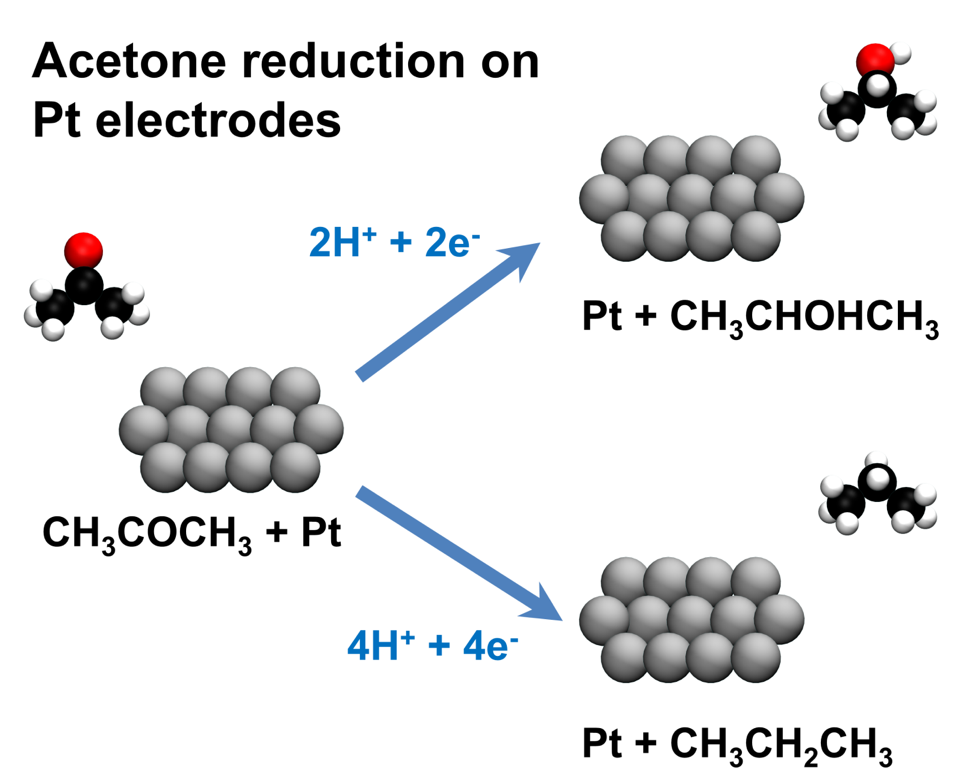New and cleaner ways of doing good old organic chemistry
Our IQTCUB’s member Federico Calle Vallejo has published a new article entitled Structural principles to steer the selectivity of the electrocatalytic reduction of aliphatic ketones on platinum
In the context of the Paris agreement on climate change and bearing in mind the growing scientific and technological interest in biomass valorization, it is important to find new, sustainable ways of doing traditional organic chemistry. This covers, of course, the transformation of compounds such as ketones, alcohols and hydrocarbons into each other, which are three of the most common families of organic compounds.
In a collaborative work recently published in Nature Catalysis, researchers of the Institute of Theoretical and Computational Chemistry of the Universitat de Barcelona and of the Leiden Institute of Chemistry of Leiden University (The Netherlands) studied the electrochemical conversion of acetone, the simplest and probably most important ketone. The researchers found that some platinum electrodes used in the electrochemical cell are inert, others produce propane (an alkane) and some produce isopropanol (an alcohol). According to the authors, such extraordinary product selectivity is determined by the atomic-scale structure of the platinum electrodes.
This work opens new and hopefully more sustainable avenues to do some good old organic chemistry.
Read more at: https://www.nature.com/articles/s41929-019-0229-3

